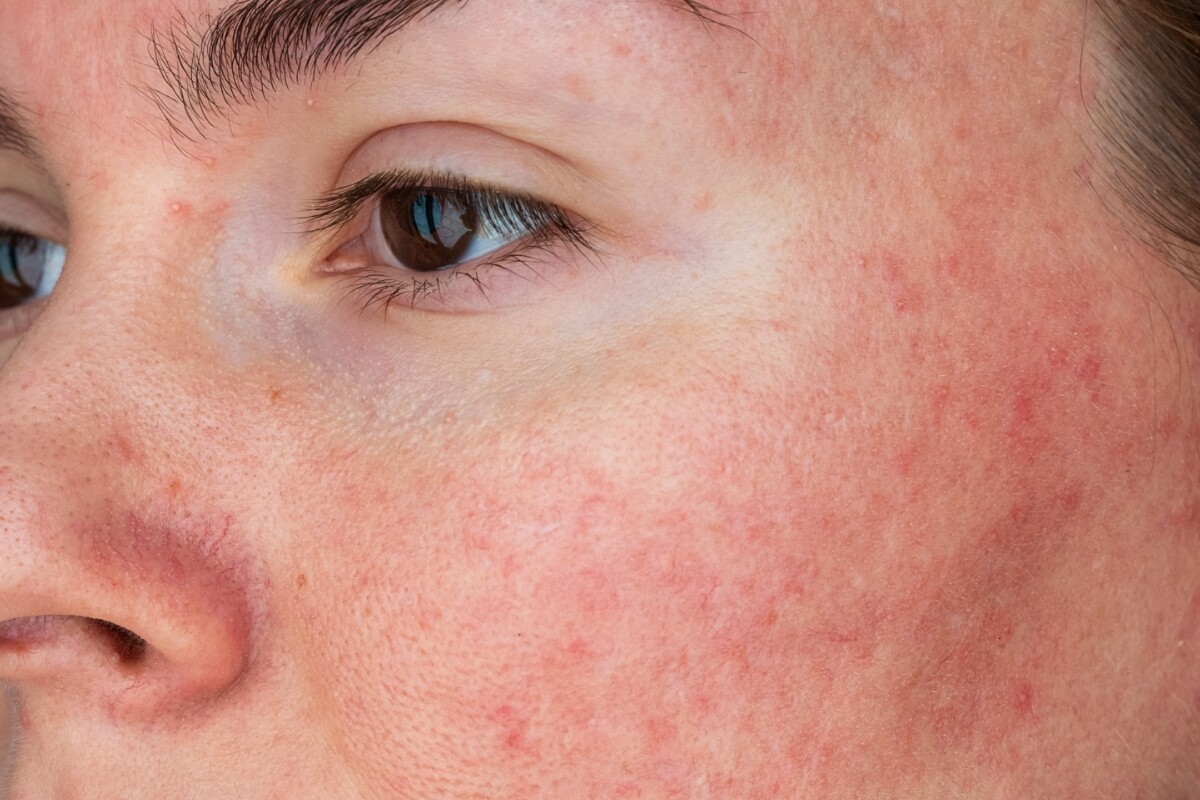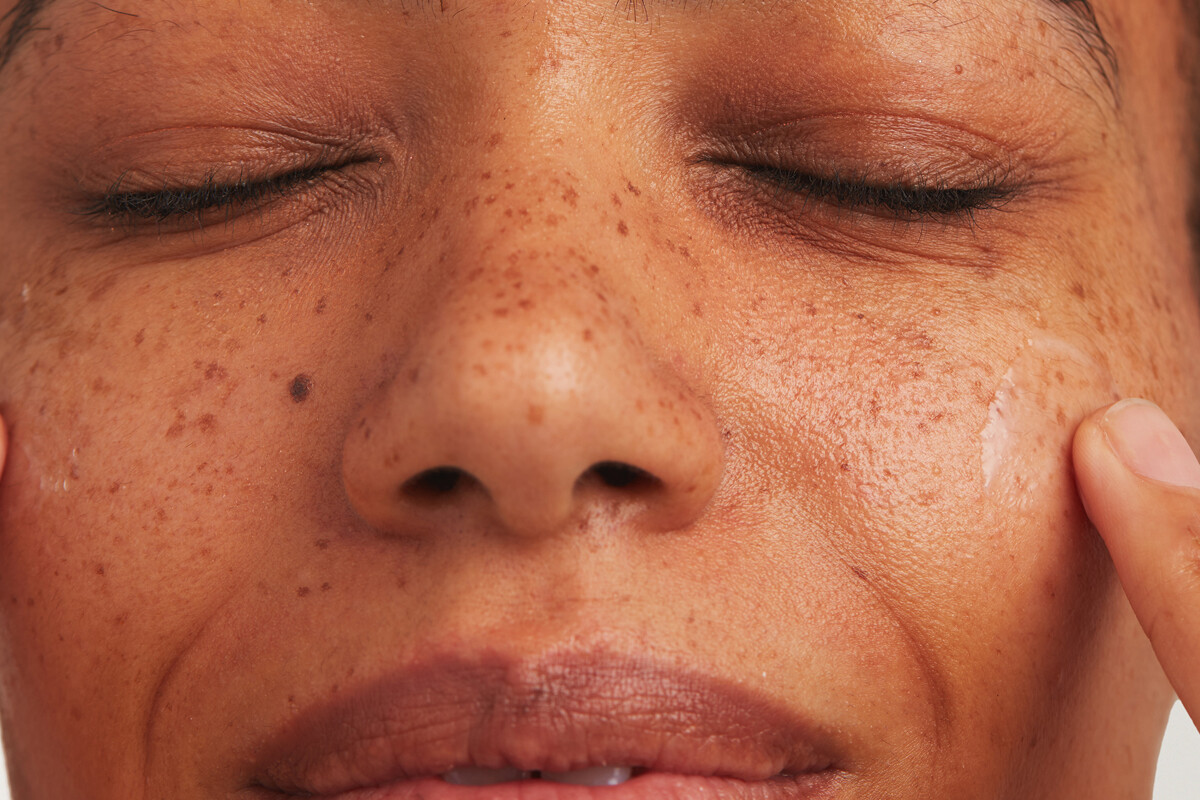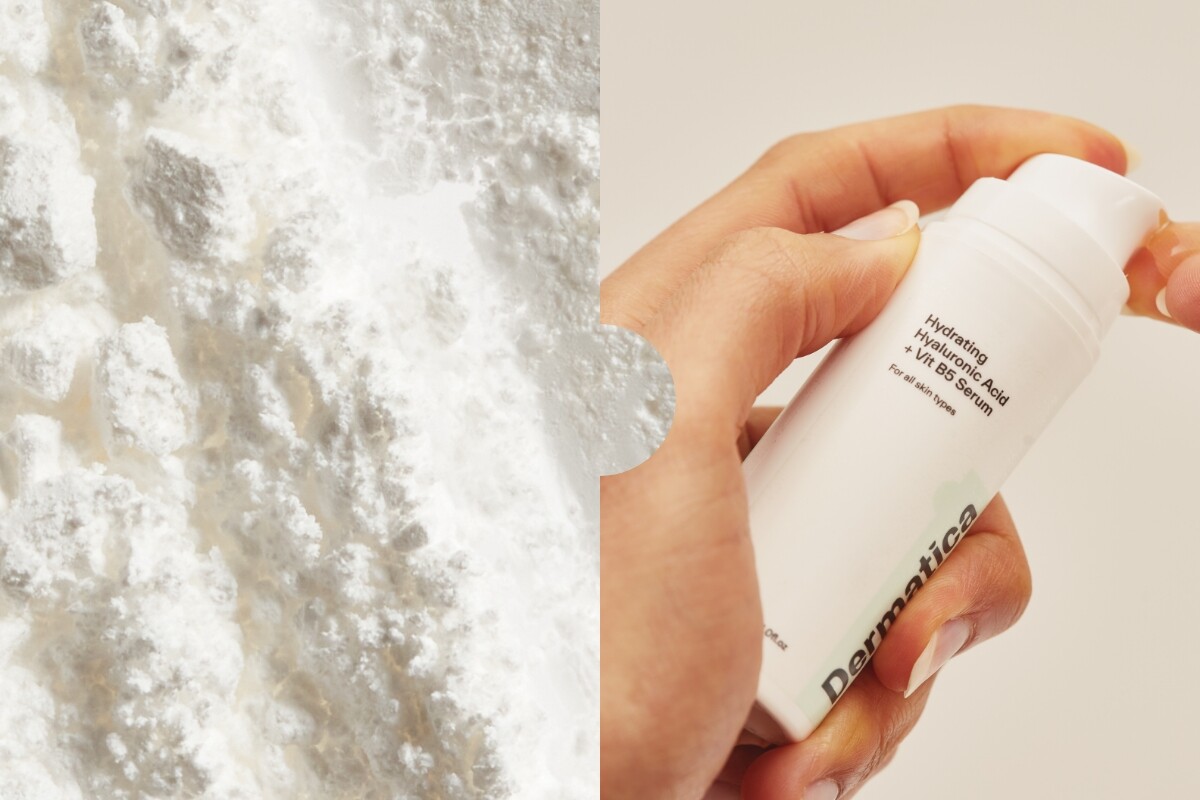Dubious about whether oral collagen supplements like collagen powders actually have healthy skin benefits? At Dermatica, we receive questions constantly about whether taking collagen powder is worthwhile from a skin health standpoint.
If you’ve already got a tub waiting in your shopping basket, you’ll be glad to know that studies behind collagen powder benefits are promising. Before we discuss what these collagen powder supplements may do for skin, we’ll let you know what collagen is, and why our skin loses it as we age. Finally, don’t miss how to make science-backed buying choices, and the steps you should take first before you’ll see the most benefits from taking collagen powder.
What Is Collagen?
Collagen is a structural protein that’s abundant in the human body. Along with hyaluronic acid and elastin, it works like scaffolding – providing support to our skin (as well as our hair, nails, connective tissue, tendons, cartilage and bones). (1)
What Does Collagen Do In The Skin?
Collagen has three major functions in the skin. It gives it:
1. Structure
2. Strength
3. Elasticity
The more collagen you have, the younger, firmer and more supple your skin looks. (1)
What Happens To Collagen As I Age?
On the one hand, our body naturally starts to produce less collagen as we age. On the other, the collagen that already exists in our skin breaks down at a faster rate, too. This downtick in collagen production is normal. It usually starts in our mid-to-late 20s, and gets progressively faster as we get older. (2)
In women and people assigned female at birth, hormones like oestrogen are related to how much collagen the body produces. This is why collagen production noticeably slows down after menopause, but it’s normal for everyone’s collagen levels to decrease after we turn 60. (3)
How Can I Tell My Collagen Levels Are Decreasing?
The effects of skin ageing are normal, natural and something everyone experiences at some stage. Here are some things you might notice in your skin as it ages.
1. More wrinkles, or deeper wrinkles that are more noticeable than before.
2. Thinner skin.
3. Loss of volume, when your skin looks less plump than when you were younger.
4. Loss of skin elasticity
5. Hollowing around your eyes and/or your cheeks. (4)
We know early skin ageing can be worrying for some people. If it’s affecting your confidence, we’ve got plenty of information below, with expert tips to help you slow this process down.
Read about how to choose anti-ageing creams that work.
Preventing Skin Ageing From Collagen Loss
Although losing collagen is a natural part of ageing, sudden weight changes and certain lifestyle habits can make this happen faster. Before you start taking collagen powder as a dietary supplement, our experts recommend checking that you aren’t speeding up the process with any of the habits below.
Lifestyle Habits That Damage Collagen
Smoking
Cigarette smoke damages collagen and elastin in the skin, which are essential for preventing skin ageing. It also constricts blood vessels, meaning less oxygen can reach your skin, slowing down how well your skin functions. There’s a direct link between the effects of smoking and how quickly wrinkles form.
UV Exposure
Sun damage from excess sun exposure also slows down your skin’s ability to produce collagen. Not using a broad-spectrum sunscreen every morning can make collagen stores in your skin break down more quickly, causing wrinkles and signs of ageing.
Consuming Excess Sugar, Alcohol And Refined Carbohydrates
The sugars in these foods attach to proteins, forming molecules that can damage other proteins nearby – causing our collagen to become dry, brittle or weak. (5)
The Science Behind Eating Collagen To Prevent Skin Ageing
We’ll go over the benefits of collagen powder supplements very soon, but first it’s important to know that collagen-rich foods that you eat won’t have the same effect.
Your body can’t reliably absorb collagen from foods because, in its whole form, collagen is a large protein that isn’t easy to digest. It needs to be broken down into amino acids first before it’s absorbed by your gut. So just because some protein-rich foods, collagen products or protein powders might say they’re sources of collagen, this doesn’t necessarily mean they’ll lead to improved skin elasticity.
For these reasons, the best type of collagen powder or pill supplement to choose is called hydrolysed collagen. It’s also often called collagen peptides. These are both names for the same product. (6)
What Hydrolysed Collagen?
Hydrolysed collagen, also known as collagen peptides, are tiny fragments of digested collagen from animals like cattle, pigs, chicken or fish. It has already been broken down into smaller peptides and amino acids. The thinking behind this is that hydrolysing collagen makes it easier – and more likely – for your body to absorb it through your small intestine. (6)
The Benefits Of Collagen Powder Supplements
Because our bodies can’t digest collagen in its whole form, taking collagen peptides may be a more reliable way to support the building blocks of younger-looking skin.
A lot of research on collagen peptides has shown great results. 1125 participants in 19 studies noticed:
– Skin looked firmer
– Skin felt more supple
– Improved skin hydration
– Less noticeable wrinkles
While these results are promising, the studies collected by the International Journal Of Dermatology all used different methods and tested a range of over-the-counter collagen supplements. Some had additional ingredients like vitamins, minerals, antioxidants and hyaluronic acid, so it’s worth taking these outcomes with a pinch of salt. (7)
The Benefits Of Hydrolysed Marine Collagen
Not all hydrolysed collagen powders are the same. Unlike collagen from land animals, hydrolysed marine collagen is sourced from fish bones, scales, and skin – and studies have shown it’s superior.
This form of collagen echoes the benefits we’ve already mentioned, and after 12 weeks, people taking marine hydrolysed collagen noticed a 24% improvement in their skin’s wrinkles and the overall appearance of the right side of their face, compared to the placebo group. They also noticed a significant improvement in the left side of their face. (8)
And in case you were worried about possible side effects, hydrolysed marine collagen is also considered safer than land animal collagen. Some might argue it’s also a more sustainable option, as it uses fish bones, scales, and skin that would otherwise be thrown away by the seafood industry. (9)
When To Start Taking Collagen Supplements
There’s one thing our experts say for certain. Whether they’re marine-derived, hydrolysed, fortified with vitamins, or not – collagen powder is not a substitute for a healthy lifestyle. Nor is it a replacement for a regular well-balanced diet or a consistent skincare routine with daily moisturiser and broad-spectrum sunscreen. Collagen supplements are a great addition, but the most effective way to prevent early skin ageing is to address those things first.
Topical Vitamin C creams like Vitamin C 15%: Fresh Batch Ascorbic Acid also have collagen-boosting benefits.
Retinoids are still considered the gold standard skincare treatment for anti-ageing, as topical retinoid creams (applied to skin) like tretinoin or retinol boost natural collagen production. Some people might potentially experience mild irritation when they first start using them, but this doesn’t happen for everyone.
So if skin ageing is a concern of yours, consider speaking to a dermatologist or licensed dermatology expert about starting a retinoid treatment plan, first.
Find out which formulas are suitable for your skin by visiting our website.
References
1. Wu M, Crane JS. Biochemistry, Collagen Synthesis [Internet]. Nih.gov. StatPearls Publishing; 2019. Available from: https://www.ncbi.nlm.nih.gov/books/NBK507709/
2. Varani J, Dame MK, Rittie L, Fligiel SEG, Kang S, Fisher GJ, et al. Decreased Collagen Production in Chronologically Aged Skin. The American Journal of Pathology [Internet]. 2006 Jun 1 [cited 2020 Apr 12];168(6):1861–8. Available from: https://www.ncbi.nlm.nih.gov/pmc/articles/PMC1606623/
3. Thornton MJ. Estrogens and aging skin. Dermato-endocrinology [Internet]. 2013 Apr 1 [cited 2020 Mar 17];5(2):264–70. Available from: https://www.ncbi.nlm.nih.gov/pmc/articles/PMC3772914/
4. Farage MA, Miller KW, Elsner P, Maibach HI. Characteristics of the Aging Skin. Advances in Wound Care [Internet]. 2013 Feb;2(1):5–10. Available from: https://www.ncbi.nlm.nih.gov/pmc/articles/PMC3840548/
5. The skin aging exposome. Journal of Dermatological Science [Internet]. 2017 Mar 1;85(3):152–61. Available from: https://www.sciencedirect.com/science/article/pii/S0923181116308167
6. León-López A, Morales-Peñaloza A, Martínez-Juárez VM, Vargas-Torres A, Zeugolis DI, Aguirre-Álvarez G. Hydrolyzed Collagen—Sources and Applications. Molecules. 2019 Nov 7;24(22):4031.
7. Miranda RB, Weimer P, Rossi RC. Effects of hydrolyzed collagen supplementation on skin aging: a systematic review and meta‐analysis. International Journal of Dermatology. 2021 Mar 20;60(12).
8. Evans M, Lewis ED, Zakaria N, Pelipyagina T, Guthrie N. A randomized, triple‐blind, placebo‐controlled, Parallel Study to Evaluate the Efficacy of a Freshwater Marine Collagen on Skin Wrinkles and Elasticity. Journal of Cosmetic Dermatology. 2020 Sep 15;20(3).
9. Geahchan S, Baharlouei P, Rahman A. Marine Collagen: A Promising Biomaterial for Wound Healing, Skin Anti-Aging, and Bone Regeneration. Marine Drugs. 2022 Jan 10;20(1):61





